Collaborative Upstream and Downstream Strategy Achieves Significant Results in Four-Year Initiative
March 2025 – The Plastic Smart Cities (PSC) programme in Thailand has successfully reduced plastic waste at source by more than 50 tonnes and recovered over 2,000 tonnes of plastic (as of December 2024) for recycling across four pilot municipalities, according to results shared at recent knowledge-sharing events in Surat Thani and Hat Yai.
Led by WWF Thailand, the initiative has worked closely with Surat Thani, Koh Samui, Songkhla, and Hat Yai municipalities since 2021, implementing comprehensive waste management strategies that align with WWF’s global vision of “No Plastic in Nature” by 2030.
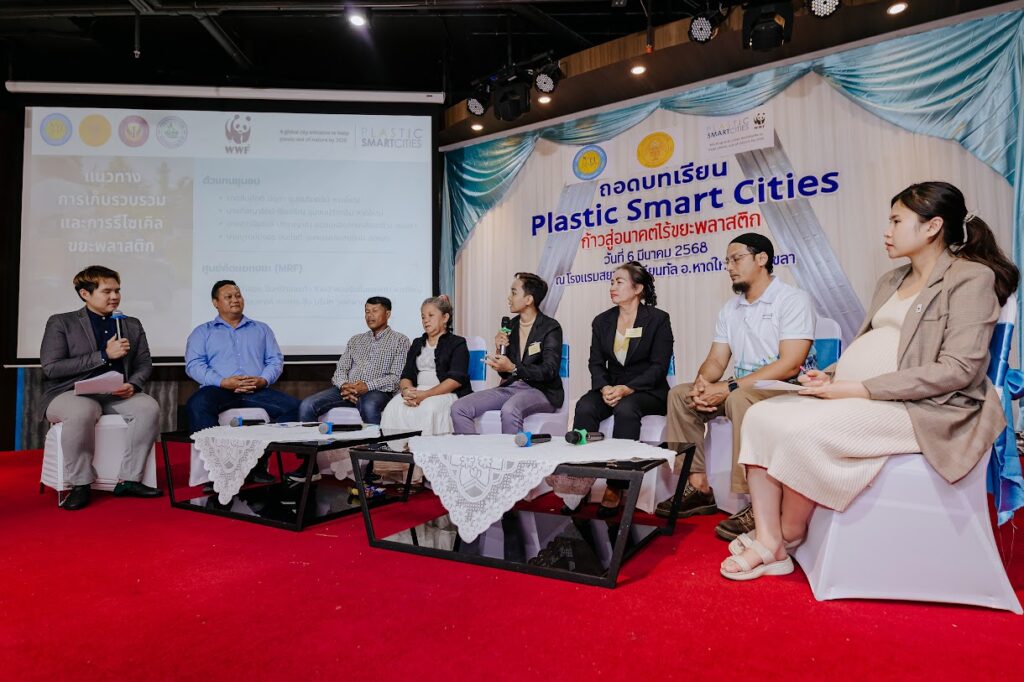
Sustaining Systemic Change through Local Partnerships
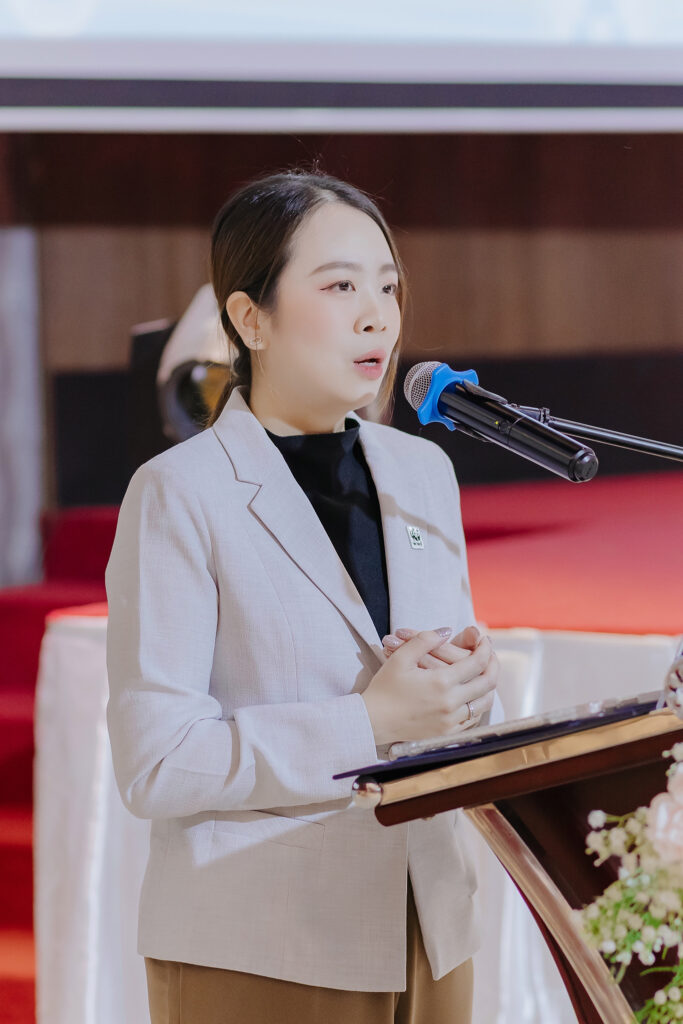
Dr. Boonchanit Wongpraphinkul, PSC Project Manager at WWF-Thailand, attributes this shared achievement to the programme’s collaborative approach: “Our projects focus on laying a long-term foundation, creating sustainable systemic change, and developing human resources to transfer knowledge and become leaders to continue future projects and activities.”
A key factor in the programme’s effectiveness has been the placement of local WWF coordinators who work closely with municipal authorities, businesses, educational institutions, and community organizations to ensure interventions are contextually appropriate and sustainable beyond the project timeline.
“All of this is possible because local coordinators work closely with relevant partners, making the project implementation truly relevant to the local context. Even after the project ends, many of our activities will continue through the network formed from the project,” Dr Boonchanit explained.
Upstream and Downstream Approaches to Address Plastic Pollution: Reduce & Recover
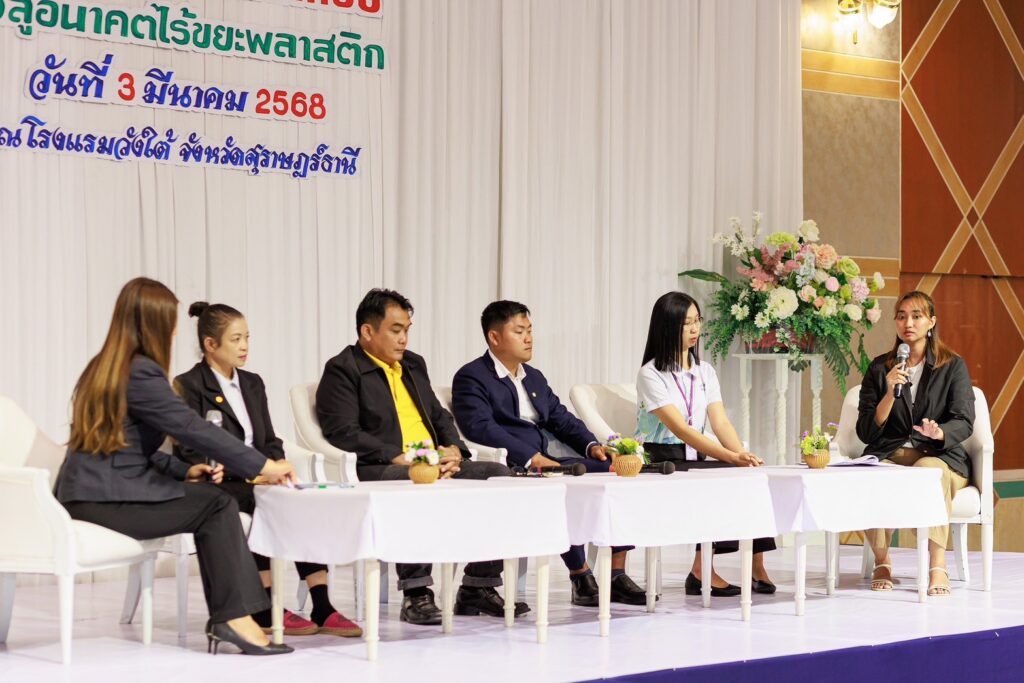
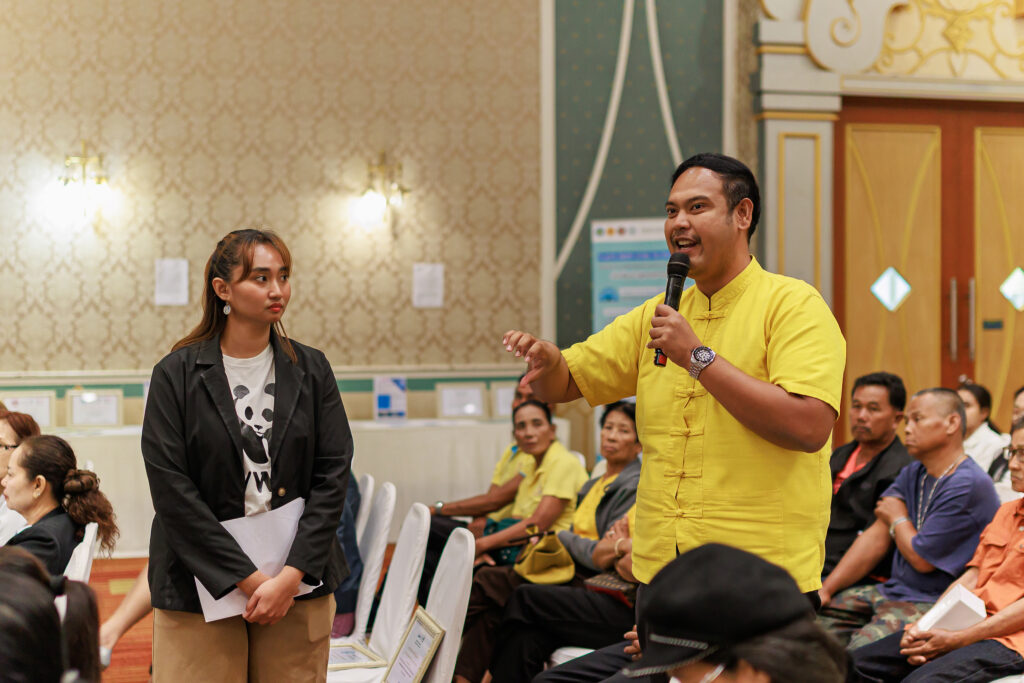
PSC in Thailand has implemented an integrated approach to plastic waste management through two complementary strategies:
- Reduce : To decrease plastic use at source through various initiatives:
- Implementing “Plastic Free School” programmes to instill waste separation habits and reduce plastic consumption in educational settings
- Partnering with the hospitality sector, including restaurants, cafés, and hotels, to minimize single-use plastics
- Collaborating with food delivery platforms like LINEMAN Wongnai and foodpanda through the “Plastic ACTion” (PACT) initiative
- Supporting public awareness campaigns that promote sustainable consumer behaviors
- Recover: To strengthen plastic waste recovery systems through
- Supporting the establishment of community waste banks and household waste separation programs
- Enhancing the capacity of municipal waste separation centers
- Developing more efficient waste trading systems
- Partnering with businesses like Dutch Mill Group and Central Group to implement “Take Back Programs” for plastic packaging
Municipal Leadership Key for Success
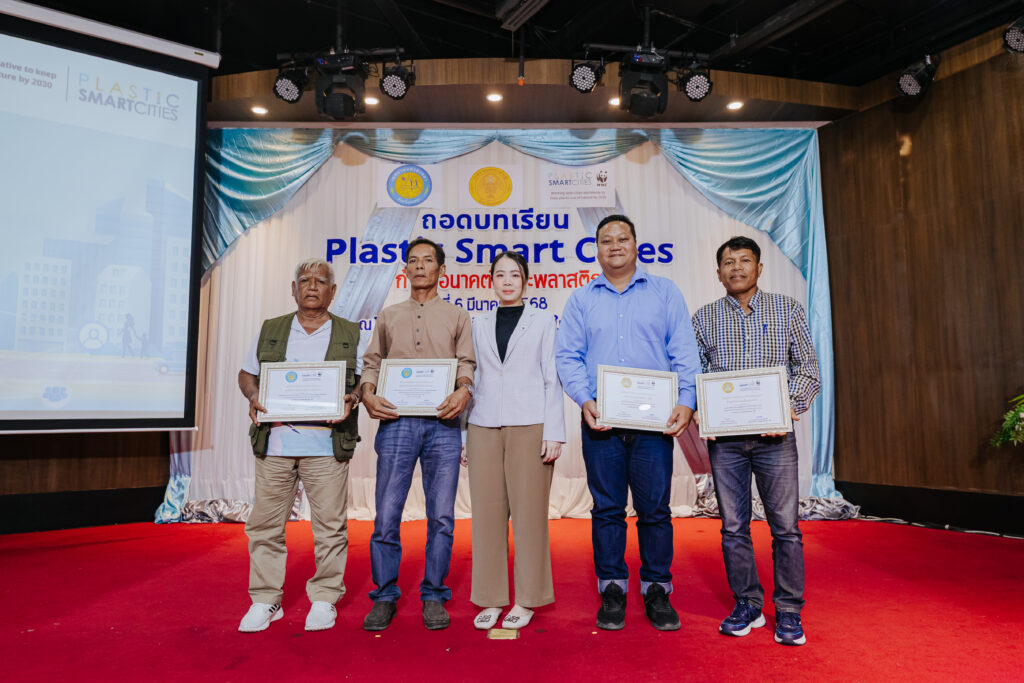
The critical role of municipal leadership in achieving mitigating plastic pollution was highlighted at the knowledge-sharing events.
City-level action is an important step that helps create a model for other areas and can be expanded to national and international levels. With a ‘Global Plastic Treaty’ under negotiation, solving the plastic waste crisis requires cooperation from all sectors on the ground, ”said Dr. Michael Roy, Conservation Director at WWF-Thailand.
Mr. Prasert Boonprasop, Mayor of Surat Thani Municipality, Mr. Winai Pinthong, Deputy Mayor of Hat Yai Municipality, and Ms. Apichada Sukonthapatipak, Director of Public Health and Environment Division representing Songkhla Municipality, joined WWF in presenting a shared recognition of key implementing partners who have been a cornerstone of the pilot success.
“The success of this project is due to the collaboration of all sectors that help create a comprehensive plastic management system and strengthen policies to drive the reduction of plastic waste towards a circular economy,” said Dr. Michael Roy.
Lessons Learned and Future Directions
The PSC programme demonstrates several important lessons for municipalities seeking to tackle plastic pollution:
- Multi-stakeholder collaboration is essential for creating effective waste management systems
- Locally-tailored approaches yield more sustainable results than one-size-fits-all solutions
- Capacity building ensures continuity of initiatives beyond the project timeline
- Dual focus on reduction and recovery creates a more comprehensive approach to plastic management
The successes achieved in these four municipalities provide valuable models that can be scaled to other cities in Thailand and internationally.
“The success of the Plastic Smart Cities programme in Thailand proves that systematic plastic management can produce results when there is integration of cooperation from all sectors.” Dr. Roy emphasized.
Originally posted on the WWF Thailand page


